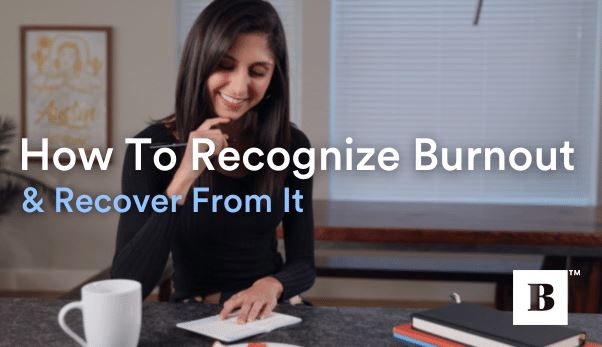by Georgina El Morshdy
The truth of who you are is one of the most beautiful things you can share with your friends, family, partner, and ultimately the world.
Often, we hold back our most authentic expression because we’re worried about being judged, rejected, or criticized. We hold our tongue, edit our words, or hide in the shadows.
The good news is that self-expression is an art and a practice. The more you do it, the more your confidence expands. The more you take risks, the braver you become.
The more you let others see who’s behind the social mask, the more you see your unique beauty.
Discover how to cultivate the ability to express your true self with these five top tips.
1.Unleash your creative self
Self-expression is the art of taking what’s inside and putting it outside of yourself.
Elevating your creativity muscle can increase your ability to reveal yoru true self because creativity is self-expression.
Pablo Picasso said, “Every child is an artist. The problem is how to remain an artist once we grow up.”
Humans are inherently creative. It’s one of our greatest gifts. Unfortunately, our creativity gets shut down because of a need to fit in or look a certain way. We’ve all got stories of how our creativity was judged harshly. Because creativity is our essence, we CAN reactivate it. This 30-day Creativity Challenge can help.
2. Boost self-expression by writing out your thoughts first
If you want to express your truth more authentically and frequently, your journal is your new best friend!
Your journal is YOUR journal (I’m obsessed with the Scribe!)
It’s a private place where you can explore your self-expression. No one needs to see what you’ve written, so you can dial up the bold and the brave and play around with ideas.
For example:
• Practice using different words.• Allow yourself to express difficult emotions without judging yourself.
• Write poetry.
• Reflect openly and honestly on experiences you’ve had.
• Ask and answer deeper questions.
• Take risks.
Turn to your journal when you want to be radically honest and experience the joy of seeing yourself -- minus the self-imposed censorship!
[If you want to dive deeper into the power of journaling as an activator of self-expression, check out this podcast episode.]
3. Give yourself permission.
Here’s a simple tip that’s often hard to implement because of the inner critic!
Fearless self-expression starts with a decision to show up as so.
Can you permit yourself to reveal more of your true self -- first to you, and then to the world?
It’s always your choice.
And, it’s a choice related to your relationship with fear.
In the words of Susan Jefferson, can you “feel the fear and do it anyway?”
Can you experiment with your comfort zone and allow yourself to thrive in discomfort?
I bet you can :-)
4. Work on your emotional intelligence.
We can elevate our ability to self-express when we expand our ability to identify and label the emotions we feel.
Most of us feel comfortable expressing so-called ‘good’ emotions such as happiness, joy, and excitement. In comparison, we find it hard to express emotions such as anger, guilt, or sadness because these types of emotions make others feel uncomfortable! It’s why they get shut down and shut away.
As you expand your language around the way you feel, you have a clearer understanding of who you are.
For example, are you feeling sad?
Or are really feeling empty, guilty, or inferior?
Are you feeling happy?
Or are you feeling proud, valued, or free?
Learning to distinguish between the subtleties of different emotions elevates our creative expression. It expands who we are. It’s empowering.
5. Choose to heal the part of you that stays silent
Many of us have experienced things that caused us to censor ourselves.
We’ve all had experiences when we believed we didn’t matter. As a result, we shut down. We became shy. We grew more introverted.
Maybe you were bullied, and you learned to survive by staying small. Maybe people said you talked too much, so you knew to hold your tongue. Perhaps people criticized you for being too bold with your opinions, so you learned to keep them to yourself.
Experiences like these (many of which may have happened in childhood) helped create a belief system.
For example:
“People aren’t interested in what I have to say.”
“It’s safer to suppress my true emotions.”
“People expect me to put on a brave face.” Etc.
These beliefs then shape our thoughts, which influence our feelings, which determine our actions. In other words, the way we show up perpetuates a pattern that may have been formed decades ago.
Coaching, therapy, or even self-reflection in a journal can help you identify the old stories and limiting beliefs that suppress your self-expression. You can transform the beliefs that drive you, replacing them with ones that empower you.
It takes courage to do this work, but it can be life-changing for some people.
Your self-expression is a gift
The famous choreographer, Martha Graham said, “There is a vitality, a life force, an energy, a quickening that is translated through you into action, and because there is only one of you in all time, this expression is unique. And if you block it, it will never exist through any other medium and will be lost.”
Your authentic self-expression is a gift for you -- and a gift for the world.
Set it free, and it will set you free.
What can you do today to express the real you fully?








Leave a comment
This site is protected by reCAPTCHA and the Google Privacy Policy and Terms of Service apply.